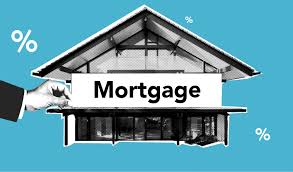
New Zealand, renowned for its breathtaking scenery, lively urban centers, and exceptional living standards, offers a compelling setting for those seeking to own a home. For numerous prospective homeowners, obtaining a mortgage loan is an essential milestone in the path to property acquisition. We explore the complexities of mortgage loans in New Zealand, providing valuable information on the process, various loan types, eligibility requirements, and strategies for obtaining the most favorable terms.
What is a Mortgage Loan?
A mortgage loan is specifically structured to assist individuals in acquiring real estate. In New Zealand, this process entails borrowing funds from a lender, which is usually a bank or financial institution, to purchase a residence. The property itself acts as collateral, indicating that the lender has the right to take possession of the property if the borrower defaults on the loan. This arrangement highlights the necessity of comprehending the responsibilities associated with undertaking such a substantial financial commitment.

Securing a mortgage is frequently one of the most significant financial decisions individuals encounter in their lifetime, with repayment durations often ranging from 15 to 30 years. Due to the long-term nature of this obligation, it is essential for borrowers to thoroughly understand the consequences of their decisions, including how interest rates, repayment conditions, and other variables will influence their overall financial well-being.
Types of Mortgage Loans in New Zealand
New Zealand provides a variety of mortgage loan options, each designed to meet distinct needs and financial circumstances:
- Fixed-Rate Mortgages: These loans feature a constant interest rate for a predetermined duration, typically between one to five years, although some lenders may extend this period. Fixed-rate mortgages offer borrowers stability and predictability in their monthly payments, protecting them from fluctuations in interest rates. This type of mortgage is particularly advantageous for individuals who prefer to manage their budgets with certainty over an extended timeframe, facilitating better planning for other financial commitments.
- Floating-Rate Mortgages: Commonly referred to as variable-rate mortgages, these loans have interest rates that may adjust periodically in response to market conditions. While floating-rate mortgages can present lower initial rates, they carry the risk of increasing rates over time. Borrowers must be ready for potential hikes in their monthly payments, which could affect their overall financial strategy.
- Split Mortgages: This option enables borrowers to segment their loan into two parts—one with a fixed rate and the other with a variable rate. Split mortgages provide a combination of stability and flexibility, allowing borrowers to benefit from lower rates while maintaining some fixed-rate security. This hybrid model can be particularly attractive in volatile market environments.
- Interest-Only Mortgages: For a designated period, usually up to five years, borrowers are required to pay only the interest on the loan, resulting in lower initial monthly payments. However, this leads to higher payments later when principal repayments commence. This mortgage type may be appealing to investors or individuals anticipating a significant rise in income in the future. It is crucial to have a repayment strategy in place, as the total debt will remain unchanged during the interest-only phase.
- Construction Loans: Tailored for individuals constructing a new home, these loans disburse funds in stages as the building progresses. This structure ensures that borrowers only incur interest on the amount drawn.making it a cost-effective option for managing the expenses of building. It’s essential for borrowers to work closely with their lenders to establish a clear timeline and budget for the construction process.
Eligibility Criteria
To be eligible for a mortgage loan in New Zealand, borrowers generally must satisfy specific requirements:
- Credit Score: A strong credit score is crucial, as it reflects the borrower’s reliability in repaying debts. Lenders will examine your credit history to evaluate your financial behavior and associated risk. Enhancing your credit score prior to application can significantly improve your likelihood of obtaining favorable loan terms.
- Income and Employment: Lenders necessitate evidence of stable income and employment. Self-employed applicants may be required to submit additional documentation, such as financial statements and tax returns, to demonstrate income stability. It is vital to ensure that all income sources are accurately documented.
- Deposit: Most lenders expect a deposit, typically around 20% of the property’s value. Some lenders may provide loans with lower deposit requirements, although these options may involve higher interest rates or extra fees. A larger deposit can greatly enhance your borrowing conditions, thereby reducing the overall mortgage cost.
- Debt-to-Income Ratio: This ratio assesses the relationship between total monthly debt payments and gross monthly income, assisting lenders in determining the borrower’s ability to handle additional debt. A lower ratio is generally advantageous and may result in more favorable loan conditions. It is prudent to review your current debts and strive to reduce them before seeking a mortgage.
- Other Financial Commitments: Lenders may also take into account other financial obligations, such as personal loans, credit cards, and additional liabilities, to evaluate overall financial health. Being open about your financial circumstances is crucial for a seamless application process.
The Mortgage Application Process

Securing a mortgage loan entails several important steps:
- Pre-Approval: Prior to beginning the search for a home, it is advisable to obtain pre-approval from a lender. This process includes an initial evaluation of the borrower’s financial status and determines the amount they are eligible to borrow. Additionally, having pre-approval can provide a competitive advantage in the housing market, signaling to sellers that the buyer is committed.
- Property Search: After receiving pre-approval, borrowers can commence their search for an appropriate property that fits within their financial parameters. It is crucial to evaluate not only the property itself but also the surrounding neighborhood, educational institutions, and available amenities. Collaborating with a real estate agent can facilitate this search, offering valuable insights into the local market conditions.
- Formal Application Submission: Upon identifying a property, the borrower must complete a formal mortgage application, which requires comprehensive financial information and supporting documentation. It is important to be ready to provide proof of identity, income verification, and details regarding existing financial obligations. Preparing this information beforehand can significantly speed up the process.
- Property Appraisal: The lender will perform an appraisal of the property to confirm its value aligns with the loan amount requested. This step is crucial for safeguarding the lender against overextending credit beyond the property’s market value. Familiarity with the appraisal process can also assist borrowers in forming realistic expectations about their property’s valuation.
- Loan Approval and Closing: If the mortgage application is approved, the lender will present a loan offer. Upon acceptance of this offer, the closing process will commence, leading to the transfer of funds and ownership of the property. This phase may take several weeks, making it vital to maintain open lines of communication with the lender throughout the duration.
Tips for Securing the Best Mortgage Deal
- Explore Multiple Options: It is advisable to assess offers from various lenders to identify the most favorable interest rates and terms. Utilizing online tools and calculators can assist in estimating monthly payments and total interest expenses, thereby facilitating the comparison of different alternatives.
- Engage in Negotiation: Do not hesitate to engage in negotiations with lenders, as they may be willing to present improved terms to secure your business. Even slight modifications in interest rates can result in substantial savings throughout the duration of the loan. Being knowledgeable about current market trends can enhance your negotiating leverage.
- Utilize a Mortgage Broker: Mortgage brokers can offer access to a wider array of loan products and advocate on your behalf. They typically possess valuable market insights and can assist in identifying lenders who are more inclined to approve your application. An effective broker can significantly reduce the time and effort required during the application process.

- Scrutinize the Details: It is essential to thoroughly review and comprehend the terms and conditions of the loan, including any associated fees or penalties. Pay particular attention to early repayment fees, which may incur significant costs if you intend to settle your mortgage earlier than anticipated. A comprehensive understanding of your mortgage can help avoid unexpected issues in the future.
- Anticipate Future Needs: Take into account possible fluctuations in interest rates and your financial circumstances, opting for a mortgage that provides flexibility for future modifications. Seek features such as offset accounts or redraw facilities, which can offer additional financial advantages and assist in more effectively managing your mortgage.
- Seek Expert Guidance: Consulting with a financial advisor or mortgage specialist can yield tailored advice based on your unique financial situation and objectives. They can help clarify the implications of various mortgage choices and aid in formulating a long-term financial plan.
Helpful Resources
For more information on mortgage loans in New Zealand, consider visiting the following websites:
- New Zealand Bankers’ Association – Offers resources and information about banking and financial services in New Zealand.
- Sorted.org.nz – A financial education website that provides tools and guides on managing money, including mortgages.
- Housing New Zealand – Provides information on homeownership assistance and resources for prospective buyers.
- Canstar – A financial comparison website that allows you to compare mortgage products from various lenders in New Zealand.
- Interest.co.nz – A comprehensive source of news and analysis on mortgage rates and the real estate market.
By leveraging these resources and staying informed, prospective homeowners can navigate the complexities of securing a mortgage loan in New Zealand with confidence. Understanding the various types of mortgages, eligibility criteria, and application processes will empower you to make informed decisions and ultimately achieve your dream of homeownership.

